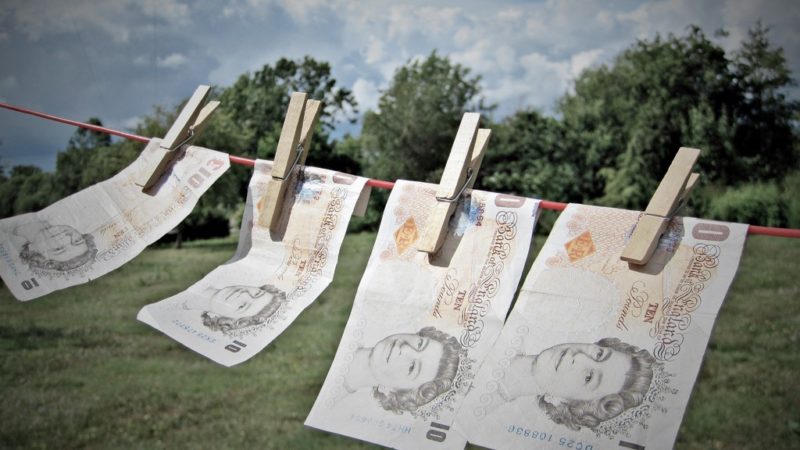People have a choice: we can have rampant corporate power or democracy, but not both.

Prem Sikka is an Emeritus Professor of Accounting at the University of Essex and the University of Sheffield, a Labour member of the House of Lords, and Contributing Editor at Left Foot Forward.
People can vote governments in and out, but one thing hardly changes. That is the power of corporations. They wield enormous power over our lives from cradle to grave, but people have little say in their affairs and increasingly governments are subservient to their interests. Who governs, is a major issue of our times. Is it people or footloose corporations, with no loyalty to any place or people?
Corporate power is underwritten by the World Bank, the World Trade Organisation, the International Monetary Fund and the Washington consensus dedicated to making the world fit for corporations to profit in. There is no countervailing structure to enhance people’s control over them.
Giant corporations grow exponentially and wield more power. Apple’s valuation of over $3 trillion is exceeded by the GDP of only the US, China, Japan, Germany and India. Indeed, turnover of major corporations eclipses the GDP of many nation states. They demand subsidies and lax laws. If governments do not comply, like locust, they move on to the next field.
Corporations control the supply of almost everything. This gives them enormous power to profiteer and condemn millions to poverty. This week, we learnt that in 2021-2022 722 mega-corporations raked in $1 trillion a year in windfall profits by profiteering from the supply of food, energy and commodities, and fuelled a cost-of-living crisis. Not many governments want to break-up these giant mammoths or levy windfall taxes upon them.
Banks have a history of profiteering from frauds, mis-selling, money laundering, tax abuses, sanctions-busting, rigging interest and exchange rates, but little is done to check their excesses. In 2022, major UK banks made record £41.1bn in pre-tax profits. Excessive profits fuel inflation and destroy people’s dreams of owning a home, but the ministers just wring their hands and governments dutifully bail them out.
Any individual making and selling deadly products is likely to be arrested, prosecuted and face personal liability, but they can carry on their illicit activities through a corporation. Corporations are permitted to manufacture and sell tobacco products, with the full knowledge that they will disable consumers. Company boardrooms manufactured Thalidomide, bovine spongiform encephalopathy (BSE, or “mad cow” disease) and diet related diseases. The rise in obesity parallels developments in food manufacturing heavily reliant upon the excessive use of salt, sugar and fats. The products send signals to brain to encourage cravings for food. All this is highly profitable for corporations whilst society picks up the tab for negative consequences.
If your dog poops on a beach, you are required to clean-up or face a fine and possible prosecution. But water companies in England are permitted to dump tons of raw sewage into rivers and cause health hazards to boost profits and executive pay.
Shareholders and directors benefit from anti-social practices, but do not personally bear the cost of restitution. They are protected by limited liability. Shareholders collect dividends but cannot be sued for death and destruction inflicted on their behalf. It falls upon the rest of society to provide healthcare and clean-up the environmental mess.
Corporations could pay higher taxes to mitigate the negative consequences of their practices, but they develop complex corporate structures and schemes to dodge taxes. HMRC states that during 2021 to 2022, it failed to collect £36bn of taxes due to evasion, avoidance fraud and error. That is nearly £450bn since 2010. The brains, or the enablers, behind the tax abuses are often accountants, lawyers and financial experts residing in leafy suburbs. In the last two years, only eight cases have been brought against the enablers.
The press does a good job in exposing abuses of power, but it too is subject to the relentless pursuit of private profits by its corporate controllers. The phone-hacking scandal shows that media barons have no qualms about hacking phones and emails of people.
People may look to governments to curb corporate power and abuses, but possibilities are constrained as political parties rely upon corporate funding. In most western countries, political parties can’t easily run election campaigns without corporate funding. This gives corporations access to key policymakers and allows them to shape public policy choices. Members of parliament are given consultancies to push corporate agenda. Upon leaving office, former UK Prime Minister David Cameron lobbied for Greensill to secure government finance. In a TV sting, now former UK chancellor, Kwasi Kwarteng, and former health secretary Matt Hancock demanded £10,000 a day to further the interests of a fake South Korean firm. Normal folks can’t compete in this market for political influence.
Failure to control corporate power will extinguish even a modicum of democracy. Perhaps, the dystopian world feared by Abraham Lincoln is already here:
“I see in the near future a crisis approaching that unnerves me and causes me to tremble for the safety of my country … corporations have been enthroned and an era of corruption in high places will follow, and the money power of the country will endeavor to prolong its reign by working upon the prejudices of the people until all wealth is aggregated in a few hands and the Republic is destroyed.”
People have a choice: we can have rampant corporate power or democracy, but not both.
Basit Mahmood is editor of Left Foot Forward
To reach hundreds of thousands of new readers we need to grow our donor base substantially.
That's why in 2024, we are seeking to generate 150 additional regular donors to support Left Foot Forward's work.
We still need another 117 people to donate to hit the target. You can help. Donate today.



